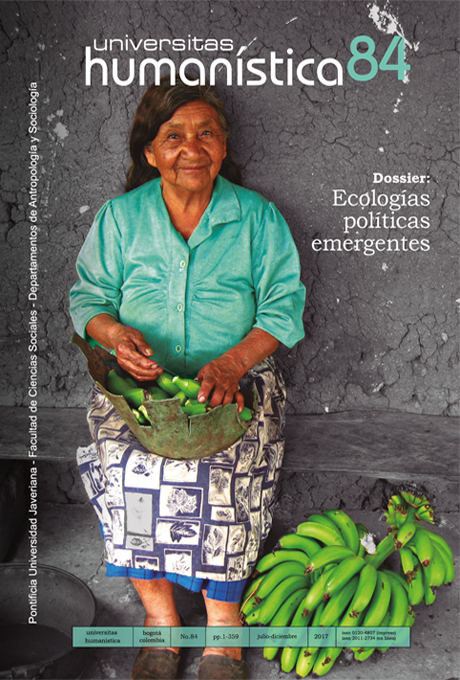Abstract
This paper develops a theoretical approach to the rape of women, in general, and of indigenous women, in particular. It presents a review of academic works on the subject, and a critical, informed analysis based on the questions and challenges of a research schedule that began in 2005 and has continued to grow in recent years with an extensive empirical research on the experiences of rape of nasa women in Northern Cauca. Nevertheless, it must be clarified that my intention is not present such fieldwork nor discuss its results, which have been published elsewhere (2016, 2017, in press). It begins by acknowledging the vast and prolific field of inquiry on “violence” in Colombia, while seeking to question it by proposing new research routes that have been silenced by the hegemonic views on the subject, whose approaches have overemphasized political violence as a research topic.

This journal provides immediate open access to its content on the principle that making research freely available to the public, encourages greater global exchange of knowledge.
The journal Universitas Humanística is registered under a Creative Commons Attribution 4.0 International Public License. Thus, this work may be reproduced, distributed, and publicly shared in digital format, as long as the names of the authors and Pontificia Universidad Javeriana are acknowledged. Others are allowed to quote, adapt, transform, auto-archive, republish, and create based on this material, for any purpose (even commercial ones), provided the authorship is duly acknowledged, a link to the original work is provided, and it is specified if changes have been made. Pontificia Universidad Javeriana does not hold the rights of published works and the authors are solely responsible for the contents of their works; they keep the moral, intellectual, privacy, and publicity rights.
Approving the intervention of the work (review, copy-editing, translation, layout) and the following outreach, are granted through an use license and not through an assignment of rights. This means the journal and Pontificia Universidad Javeriana cannot be held responsible for any ethical malpractice by the authors. As a consequence of the protection granted by the use license, the journal is not required to publish recantations or modify information already published, unless the errata stems from the editorial management process. Publishing contents in this journal does not generate royalties for contributors.


